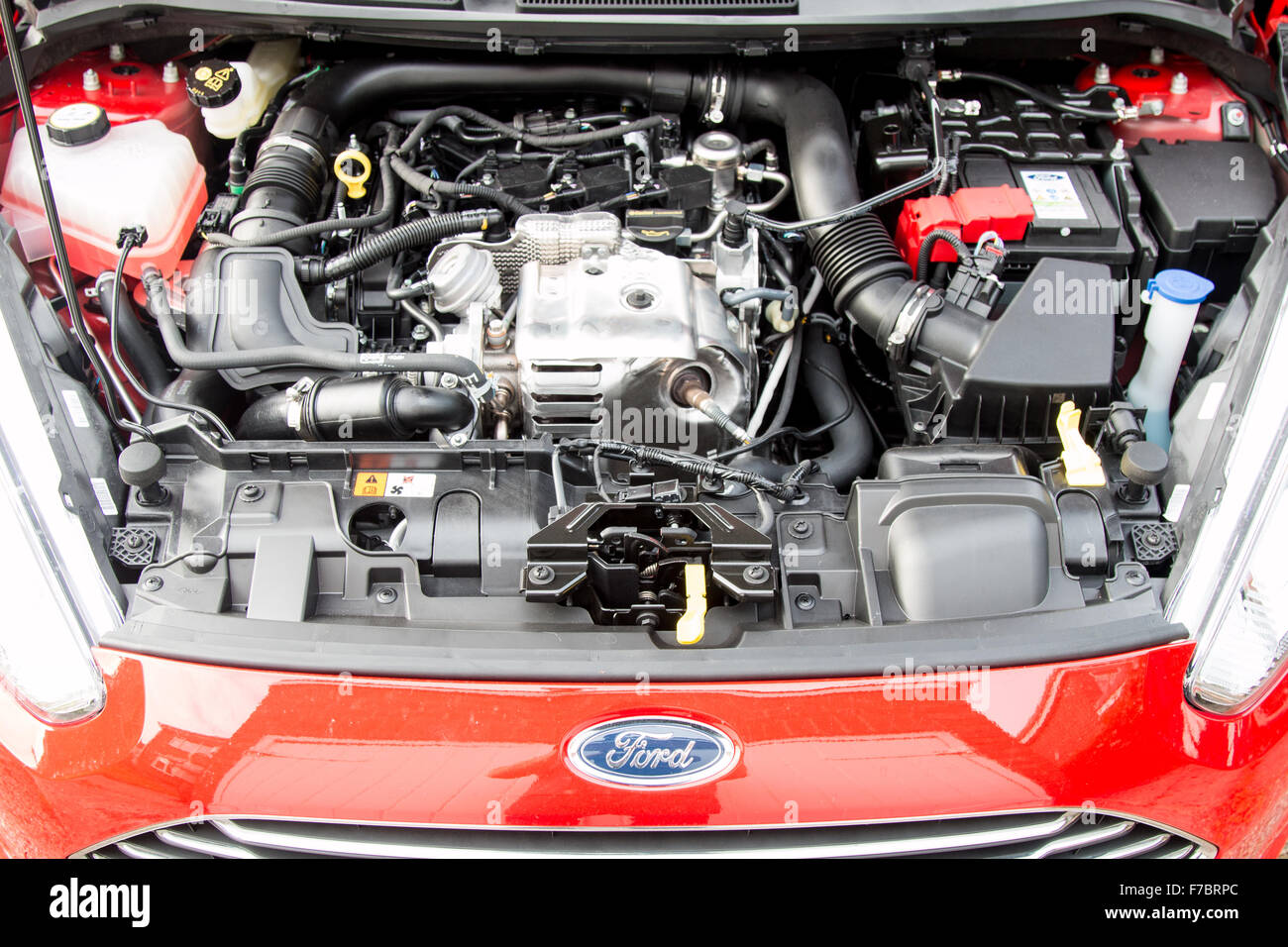How a Well-Maintained Ford Fiesta Engine Improves Vehicle Longevity
Wiki Article
Opening the Power of Engines: A Comprehensive Overview to Efficiency and Effectiveness
Recognizing the intricate mechanics of engines is essential for both performance lovers and everyday drivers. The answers might redefine our method to engine efficiency and effectiveness in means that are both informing and crucial.Recognizing Engine Fundamentals
What comprises the essential technicians of an engine? At its core, an engine is an equipment created to transform gas into mechanical power with a series of controlled surges or combustion processes.The crankshaft after that transforms this straight motion right into rotational power, which eventually powers the automobile. The camshaft regulates the opening and closing of the shutoffs, managing the intake of air and fuel and the expulsion of exhaust gases. Additionally, the engine relies on a thoroughly calibrated fuel-air combination, ignition system, and cooling down system to guarantee optimal performance and performance.
Recognizing engine fundamentals likewise involves recognizing the value of engine cycles, such as the four-stroke cycle, that includes intake, exhaust, power, and compression strokes. Each phase is important in ensuring the engine operates smoothly and properly. Mastery of these fundamental technicians prepares for discovering more intricate engine characteristics and performance metrics, necessary for enhancing both power output and efficiency.
Trick Efficiency Metrics
Trick performance metrics are essential for examining an engine's performance and power output, giving useful understandings for both customers and makers. These metrics work as standards for engine efficiency, permitting for notified choices in investing in, design, and production.One of the key metrics is horsepower, which quantifies the engine's capacity to perform work over time. Torque, measured in pound-feet, is another essential metric that suggests the engine's rotational pressure, straight influencing velocity and hauling capacity. Fuel performance, usually determined in miles per gallon (MPG) or liters per 100 kilometers (L/100km), examines how effectively the engine converts fuel right into activity, impacting environmental considerations and operational prices.
Furthermore, thermal efficiency steps how well an engine transforms fuel energy into beneficial job, exposing insights into energy losses mainly with heat. Discharge degrees, consisting of carbon dioxide and NOx, are likewise crucial, mirroring the engine's environmental influence and compliance with regulatory standards.

Tuning Methods for Performance
Tuning strategies play a substantial role in enhancing engine efficiency by enhancing efficiency metrics recognized in earlier conversations (ford fiesta engine). Different methods exist to make improvements an engine, each adding to enhanced gas economy and minimized emissionsOne efficient technique is changing the air-fuel proportion, guaranteeing the engine runs within the ideal combustion program. A leaner blend can enhance gas performance, yet it should be balanced to stop misfires or engine knock. In addition, reprogramming the engine management system can rectify criteria such as ignition timing, which further boosts performance while maintaining power output.
Another essential strategy entails changing the consumption and exhaust systems. Upgrading to high-performance air filters and exhaust headers can reduce back stress, facilitating much better air flow. This allows the engine to breathe more easily, resulting in boosted burning efficiency.
Moreover, the implementation of innovative adjusting devices, like dyno testing, provides precise information that allows targeted changes. Frequently keeping track of these efficiency metrics guarantees that tuning initiatives produce the wanted effectiveness results. Collectively, these methods not just strengthen engine efficiency yet also add to long-term sustainability in engine procedures.
Maintenance for Optimum Efficiency
Normal engine maintenance is important for achieving optimal performance and longevity. A properly maintained engine not just runs effectively but also reduces the threat of expensive repairs and break downs. Key parts requiring routine attention consist of oil, filters, belts, and ignition system.Altering the engine oil at suggested periods is critical, as oil lubes relocating parts and avoids overheating. Changing oil and air filters guarantees that impurities do not harm engine feature. Disregarding these parts can cause reduced effectiveness and potential engine damage.
Furthermore, checking and replacing worn belts and hoses is essential to stop unexpected failures. Timing belts, specifically, need to be changed according to the supplier's routine to avoid tragic engine damage.
Ignition system need to additionally be checked and replaced as required, because they play a crucial function in ignition and gas efficiency.
Future Trends in Engine Modern Technology
Welcoming improvements in technology, the future of engine style is poised to reinvent efficiency and efficiency throughout various applications. Crossbreed and completely electrical powertrains are ending up being increasingly conventional, supplying decreased discharges and improved gas performance.In addition, advancements in materials scientific research are causing lighter, stronger elements that enhance engine performance while lowering power intake. Advanced manufacturing techniques, such as 3D printing, permit the creation of complicated geometries that improve air movement and thermal monitoring, hence enhancing combustion procedures.
In addition, the integration of expert system and maker understanding is readied to transform engine diagnostics and performance tuning. These technologies can examine vast amounts of information in real time, enabling predictive maintenance and customized efficiency improvements.
Final Thought
In conclusion, opening the power of engines needs a detailed understanding of their technicians and efficiency metrics. Carrying out effective tuning strategies and sticking to regular upkeep practices significantly enhance engine capacities.you can look here
In addition, the engine relies on a carefully calibrated fuel-air mixture, ignition system, and cooling down system to ensure optimum performance and performance.
Understanding engine fundamentals additionally includes recognizing the significance of engine cycles, such as the four-stroke cycle, which includes intake, exhaust, compression, and power strokes. Proficiency of these fundamental check my reference auto mechanics lays the foundation for exploring extra complicated engine dynamics and performance metrics, vital for optimizing both power output and performance.

Accepting advancements in innovation, the future of engine design is positioned to transform performance and performance across different useful link applications.
Report this wiki page